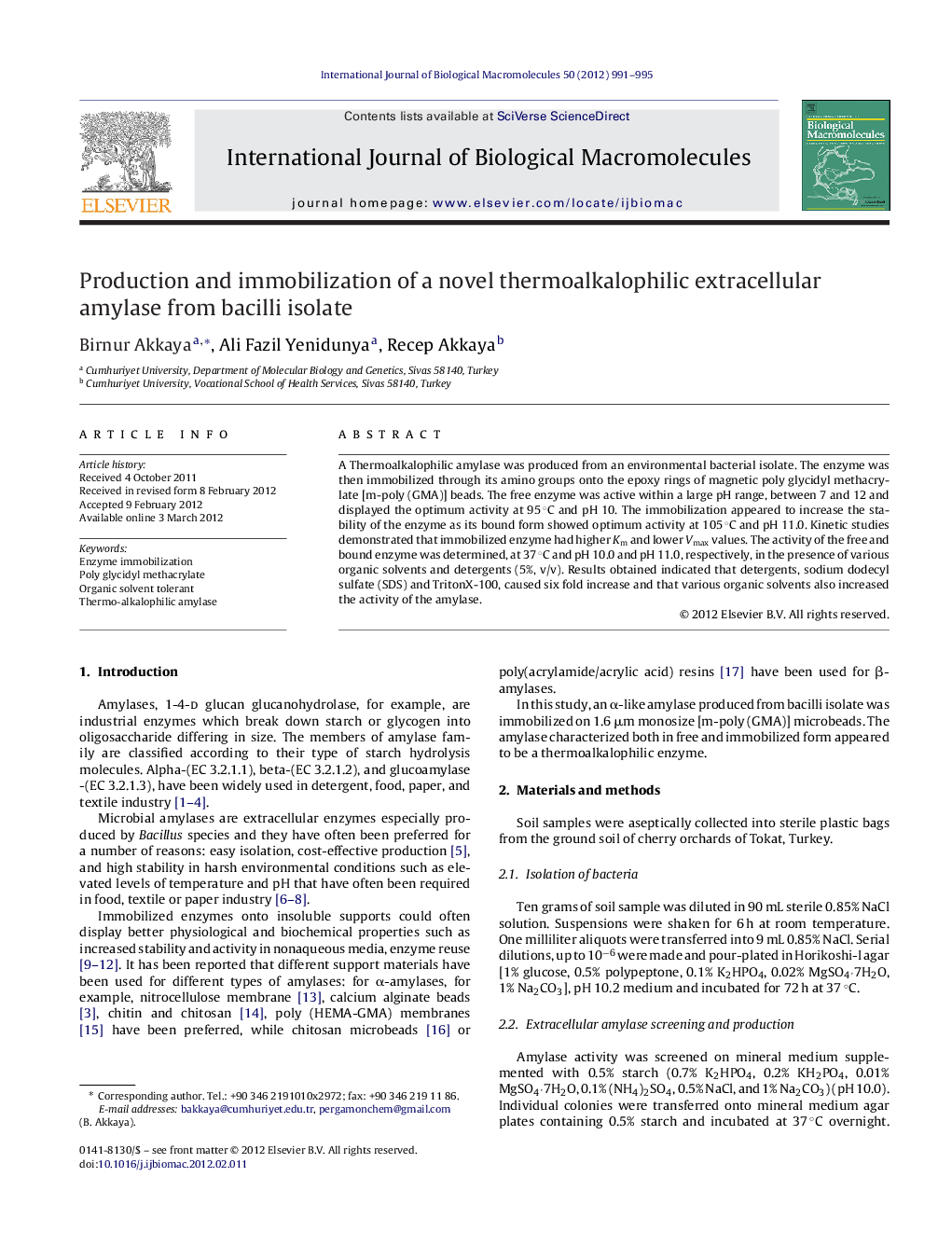| Article ID | Journal | Published Year | Pages | File Type |
|---|---|---|---|---|
| 1987193 | International Journal of Biological Macromolecules | 2012 | 5 Pages |
A Thermoalkalophilic amylase was produced from an environmental bacterial isolate. The enzyme was then immobilized through its amino groups onto the epoxy rings of magnetic poly glycidyl methacrylate [m-poly (GMA)] beads. The free enzyme was active within a large pH range, between 7 and 12 and displayed the optimum activity at 95 °C and pH 10. The immobilization appeared to increase the stability of the enzyme as its bound form showed optimum activity at 105 °C and pH 11.0. Kinetic studies demonstrated that immobilized enzyme had higher Km and lower Vmax values. The activity of the free and bound enzyme was determined, at 37 °C and pH 10.0 and pH 11.0, respectively, in the presence of various organic solvents and detergents (5%, v/v). Results obtained indicated that detergents, sodium dodecyl sulfate (SDS) and TritonX-100, caused six fold increase and that various organic solvents also increased the activity of the amylase.
Graphical abstractFigure optionsDownload full-size imageDownload as PowerPoint slideHighlights► A new produced amylase (thermoalkalophilic). ► Immobilization on m-poly(GMA) via epoxy ring. ► Activity studies both of free and immobilized enzyme.
